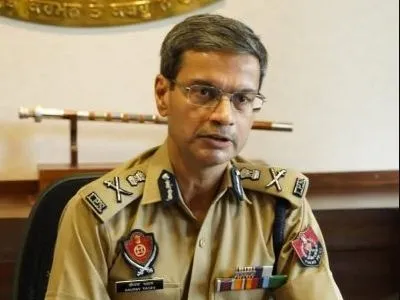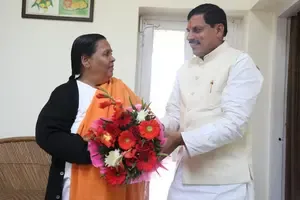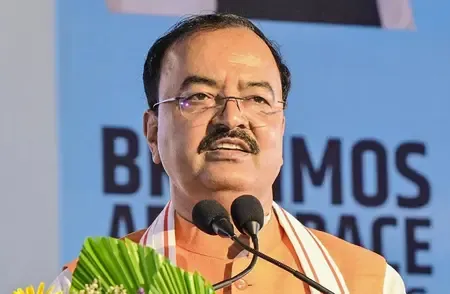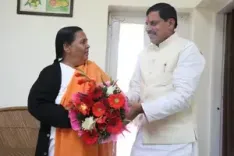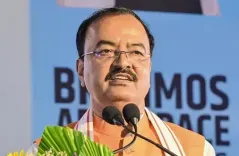How is Piyush Goyal urging industry leaders to transform India into a manufacturing hub?
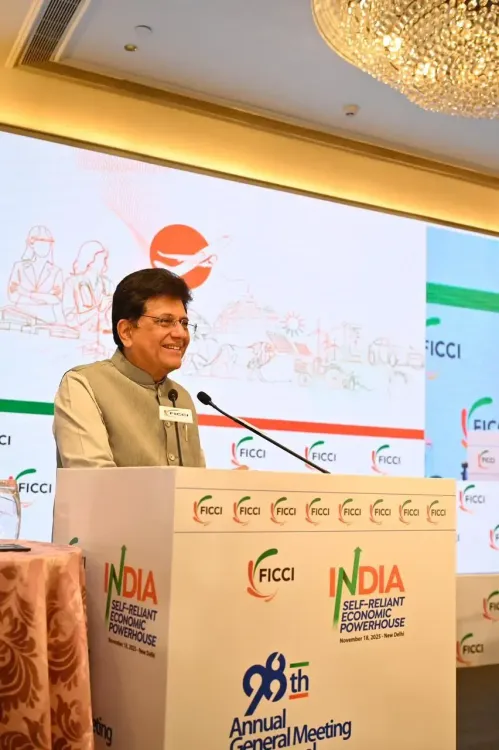
Synopsis
Key Takeaways
- Piyush Goyal emphasizes the need for India to become a manufacturing hub.
- Focus on self-reliance and quality products.
- Transformation of youth into a skilled workforce is essential.
- The Jan Vishwas Bill aims to simplify business operations.
- Industry bodies should engage beyond elite circles for inclusive growth.
New Delhi, Nov 18 (NationPress) Commerce and Industry Minister Piyush Goyal on Tuesday called on industry leaders to concentrate on establishing India as a domestic industrial manufacturing hub, aiming to fulfill the vision of Viksit Bharat.
During the curtain-raiser event for FICCI's annual general meeting, the minister emphasized that India Inc. must strive for self-reliance by prioritizing quality products, transforming young individuals into a skilled workforce, fostering an investment-friendly environment, and incorporating cutting-edge technology.
He stated, "The government has introduced two versions of the Jan Vishwas Bill, and we are currently preparing the third iteration to decriminalize various legal provisions, thereby simplifying operations for businesses and the general populace."
Commending FICCI for its 98 years of policy advocacy, Goyal remarked that self-reliance has been a cornerstone of the business chamber's principles since its formation.
The Minister added that as FICCI approaches its centenary in 2027, there should be aspirations to become the third-largest economy.
He noted that the government's journey has evolved from "Virasat to Vikas and then Vishwaas". "It is the politics of trust that is driving India towards becoming a developed nation," he mentioned.
Highlighting five essential expectations from the industry, he encouraged industry bodies like FICCI to rigorously evaluate the outcomes of their advocacy initiatives.
Furthermore, the Union Minister stressed the importance of setting more ambitious targets, learning from countries like Korea and Sweden, which have successful industrial growth and business facilitation models. He also urged FICCI to extend its outreach beyond major urban centers to reach India's remote areas.
"Industry bodies should not limit themselves to elite business circles but should broaden their engagement to foster growth nationwide," he asserted, urging FICCI to become what he termed an "uncomfortable leader" that challenges itself and drives India toward excellence.
FICCI president Harsha Vardhan Agarwal reported that India is now growing at over 7 percent, the fastest among major economies, contributing nearly one-sixth of global growth. He emphasized that this transformative phase is increasingly powered by domestic capability, underpinned by policy stability and confidence.

